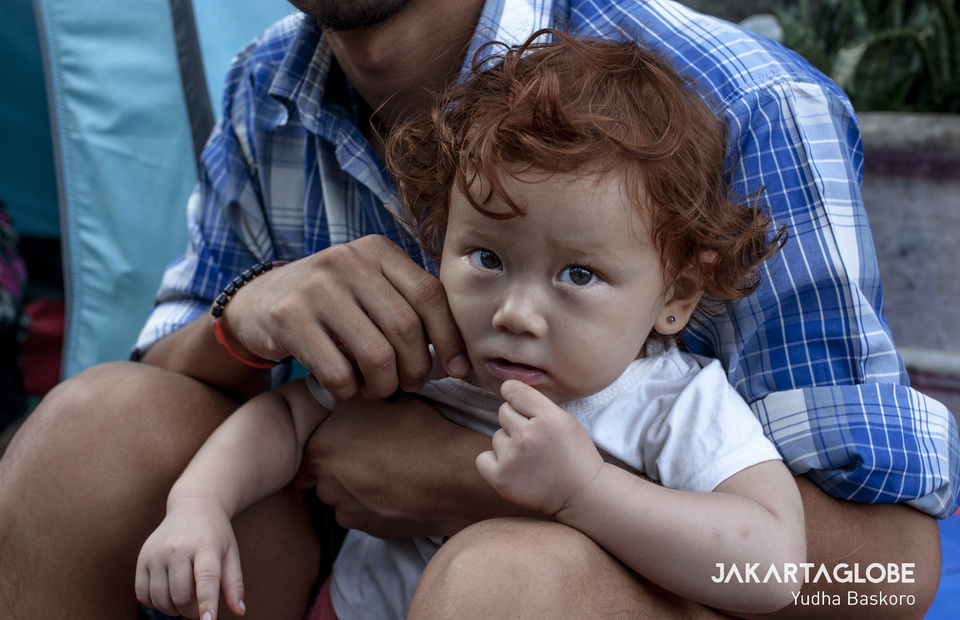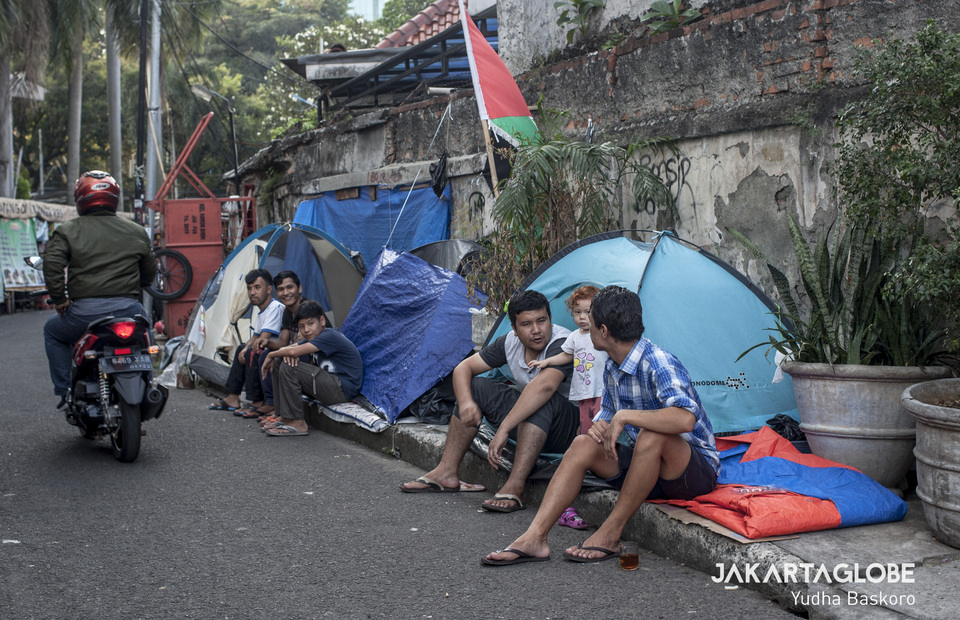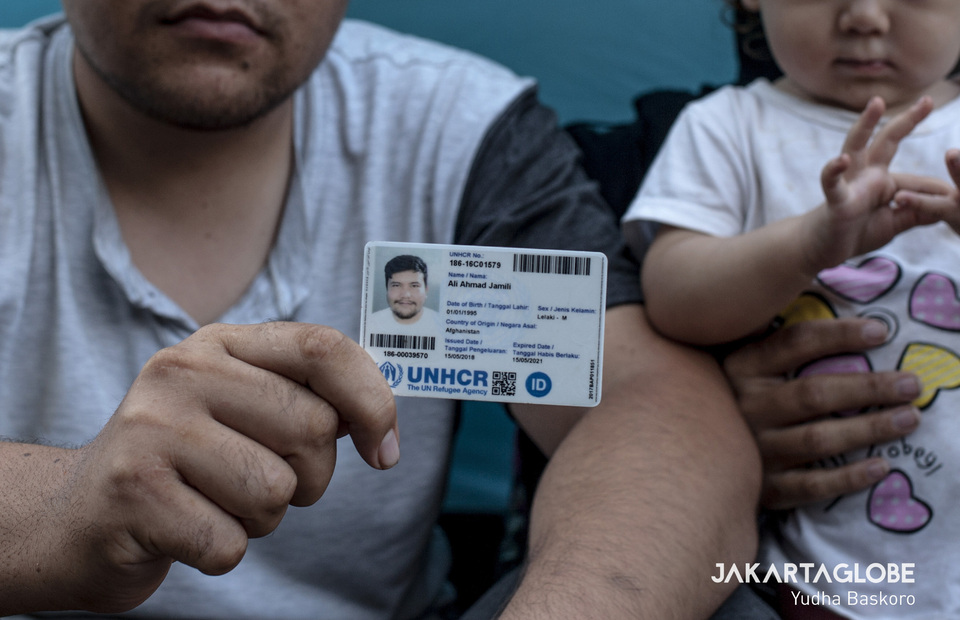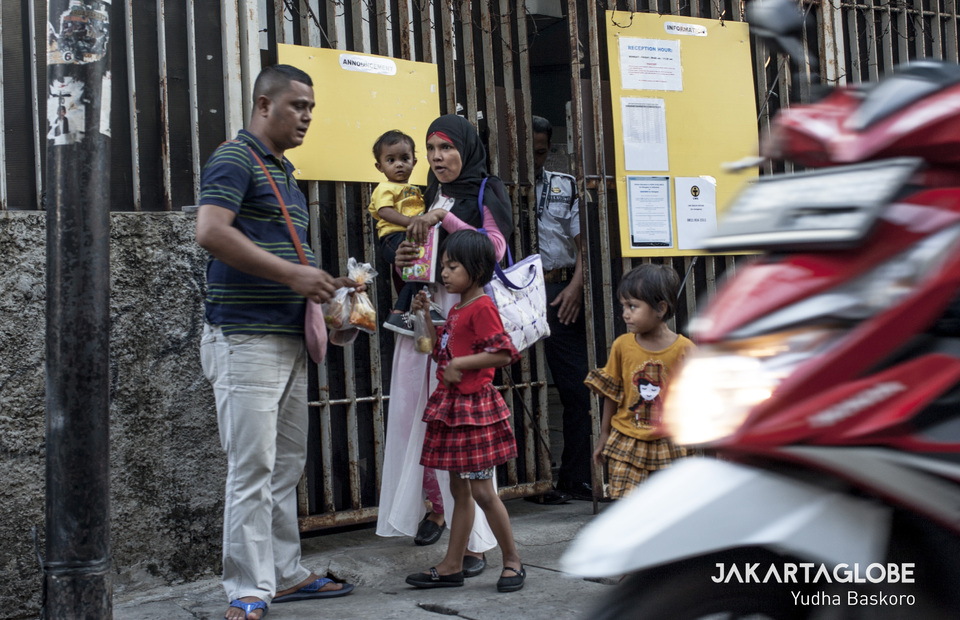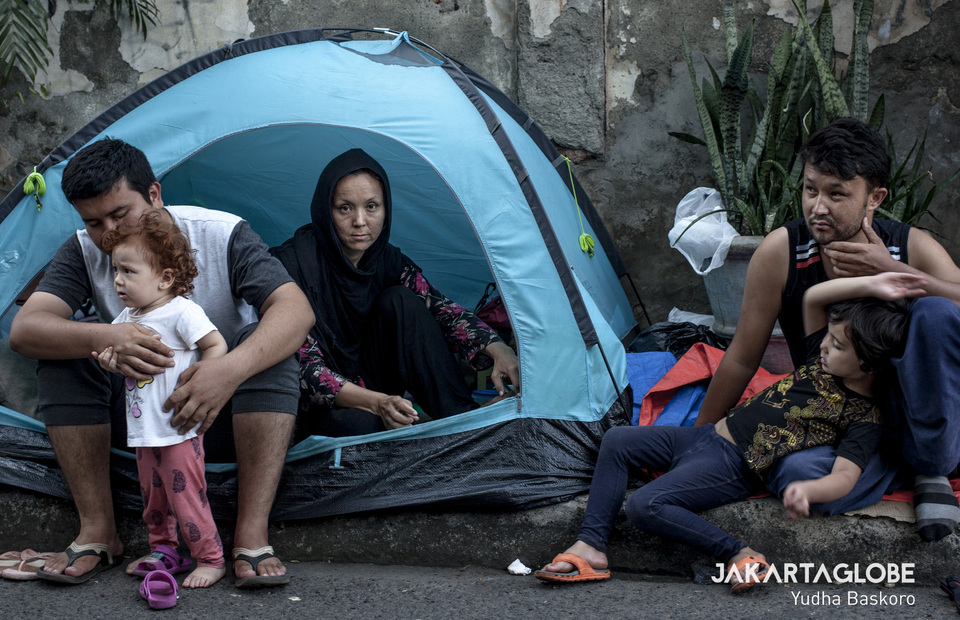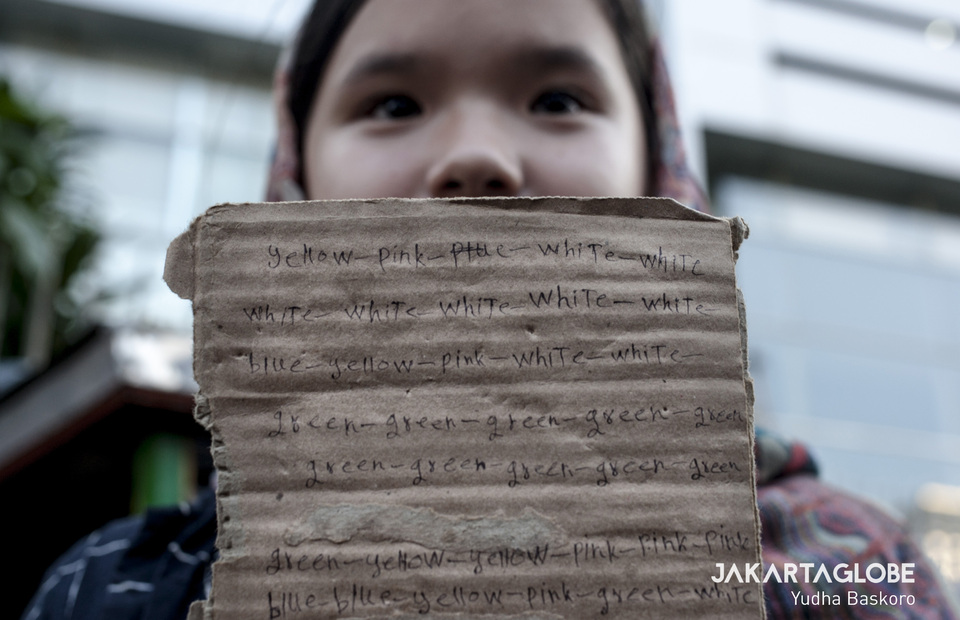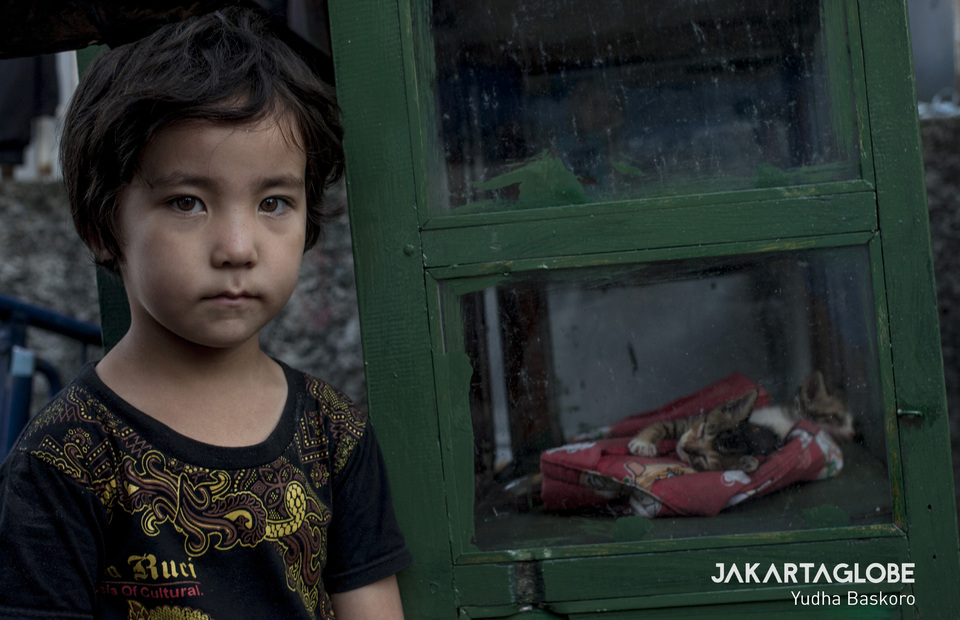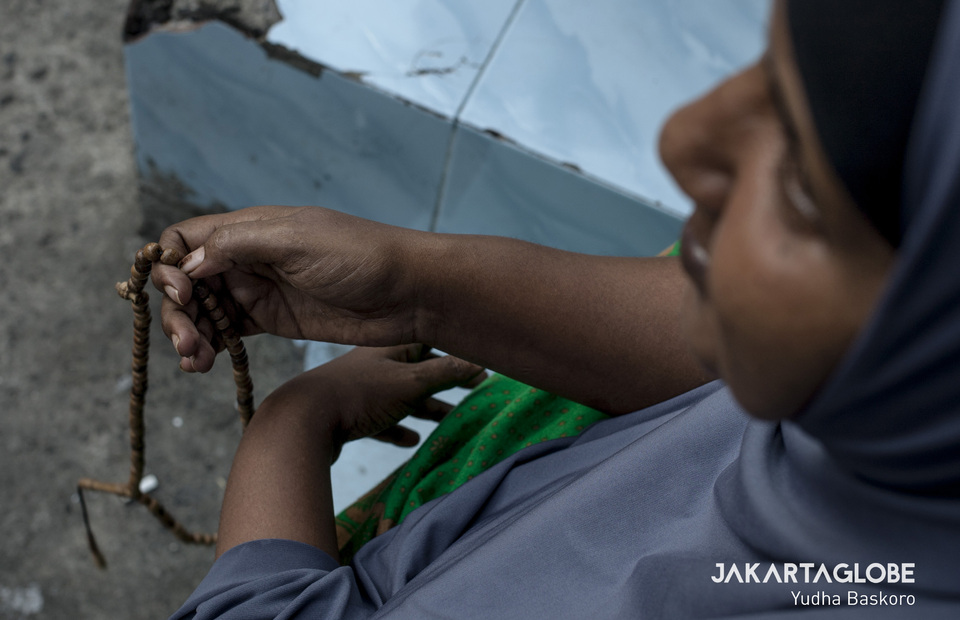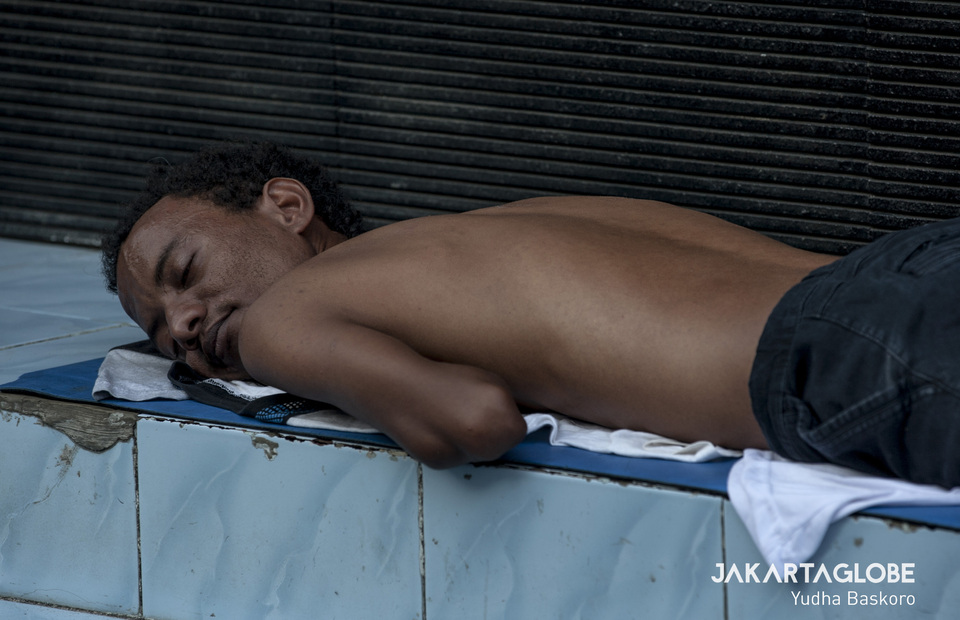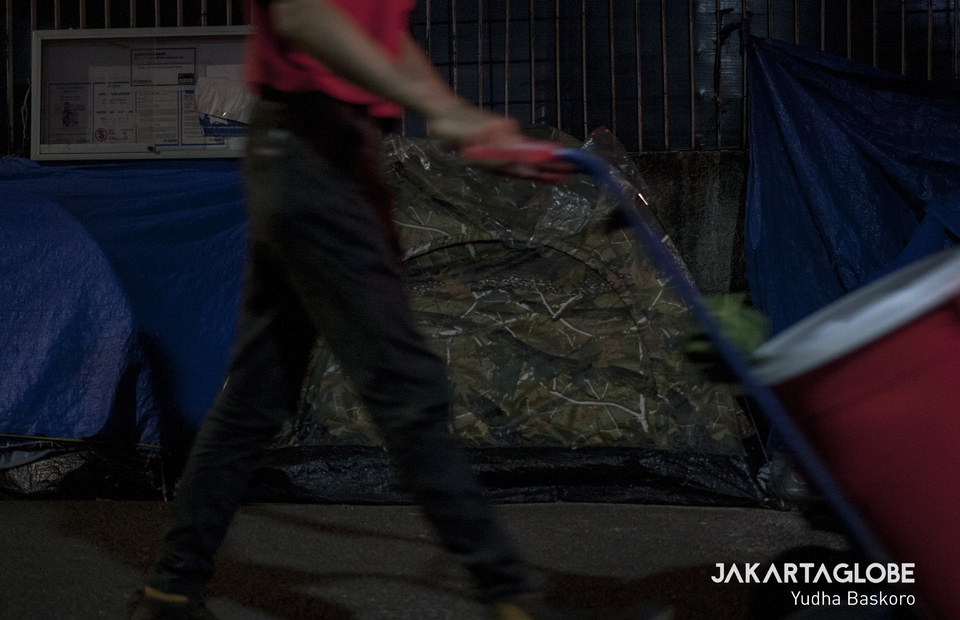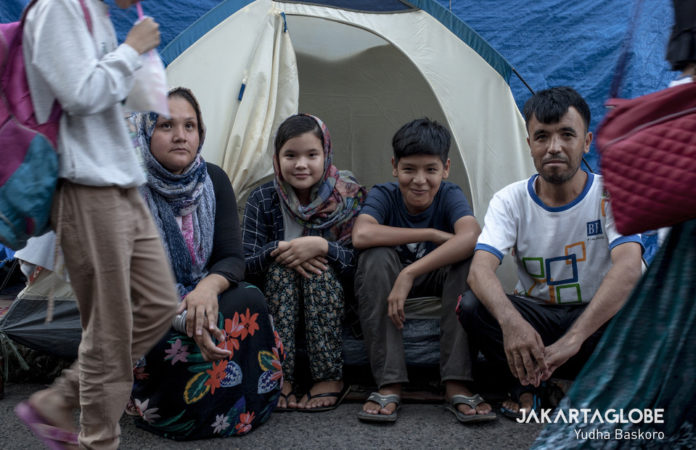
Jakarta Global
A tiny alley just around the corner from the United Nations’ refugee agency, the UNHCR, on Jalan Kebon Sirih in Central Jakarta, has become a home in transit for a group of 15 asylum seekers and refugees from Afghanistan, South Sudan and Somalia.
Most of these displaced people intend to resettle in Australia or Canada, but for the moment, they are forced to live and sleep rough on the streets of the capital.
The group on Jalan Kebon Sirih said they were lured by people smugglers to come to Indonesia. “I came here two and a half years ago because there was war in my country, Afghanistan. A smuggler bought plane tickets to Indonesia for me and my family,” said 24-year-old Ali Ahmad in front of his tiny plastic tent on Tuesday.
Asylum seekers and refugees are allowed to stay temporarily in Indonesia while waiting for their resettlement application to be processed by the UNHCR, but they are not allowed to work here. As a result, they have a lot of free time in their hands but nothing to do. The older refugees have babies and young children but can’t provide for them. They rely on the charity of others to make ends meet.
“I can only wait for help from the UNHCR or other refugee organizations. We face so many problems living in transit like this. We don’t have enough food and water. This is not a healthy way to live for our babies and children,” Ali said.
“We’ve learnt how to speak Indonesian, so we can ask for food or permission to take a shower at the nearby mosque. The children are very fluent in Indonesian,” Ali said.
Ten-year-old Zahra and her older brother Yosir, 13, from Afghanistan, learn how to speak Indonesian and English using a piece of cardboard where they write a list of words and phrases they want to learn.
“[But] four years of waiting for resettlement here is better than having to face threats of violence and persecution in Maidan Wardak, where I come from in Afghanistan,” Ali said.
The refugees from Sudan and Somalia on Jalan Kebon Sirih preferred to remain anonymous, but they wanted it to be known that they wish the Indonesian government and the UNHCR treat them better, or at least give them a proper place to live.
The UNHCR reported that last year more than 71 million people from Syria, Afghanistan, South Sudan, Myanmar and Somalia have been forced to leave their homes to escape war. More than 15,000 asylum seekers and refugees are now stranded in Indonesia – the highest number since the UNHCR was founded almost 70 years ago.
